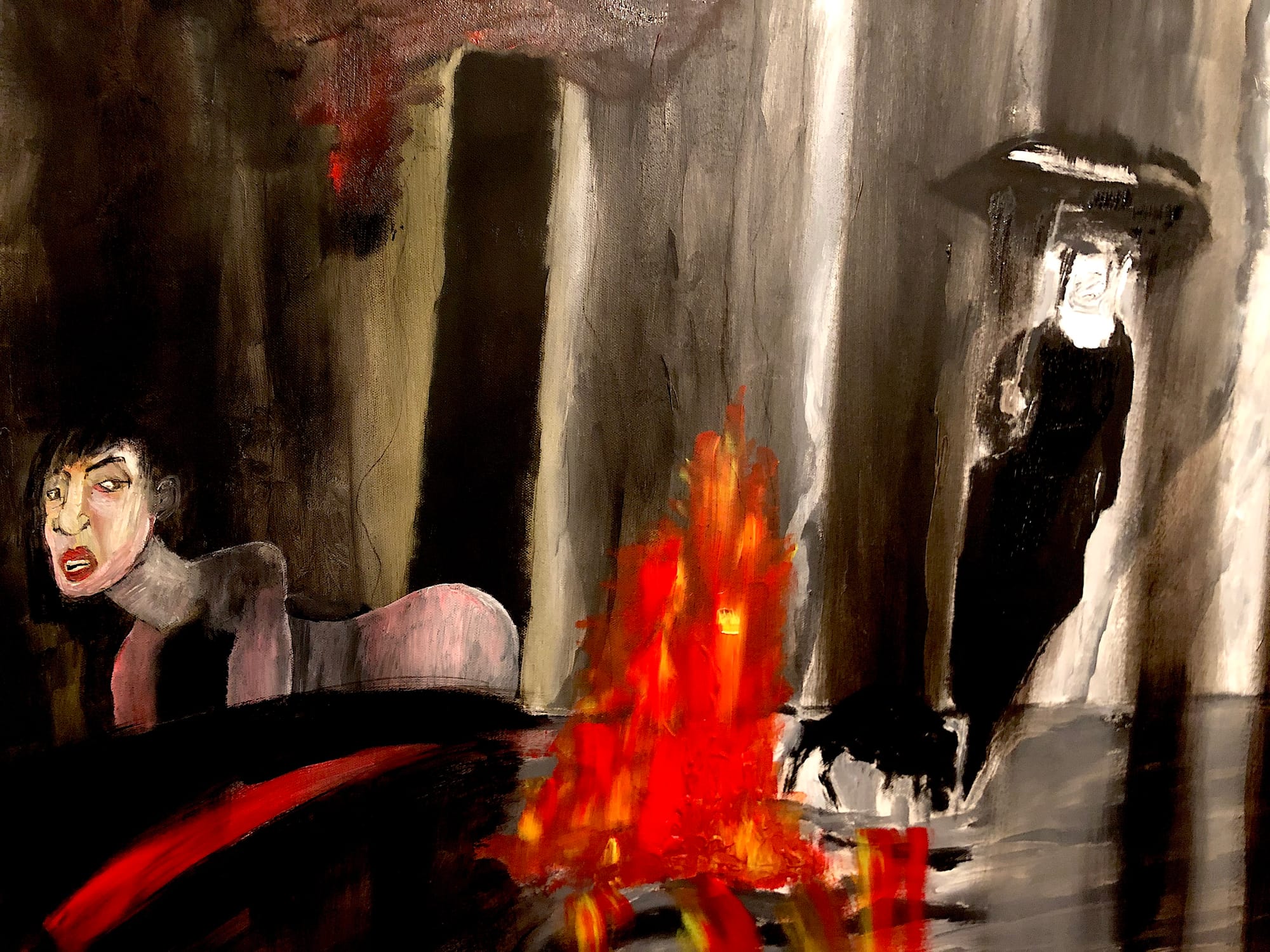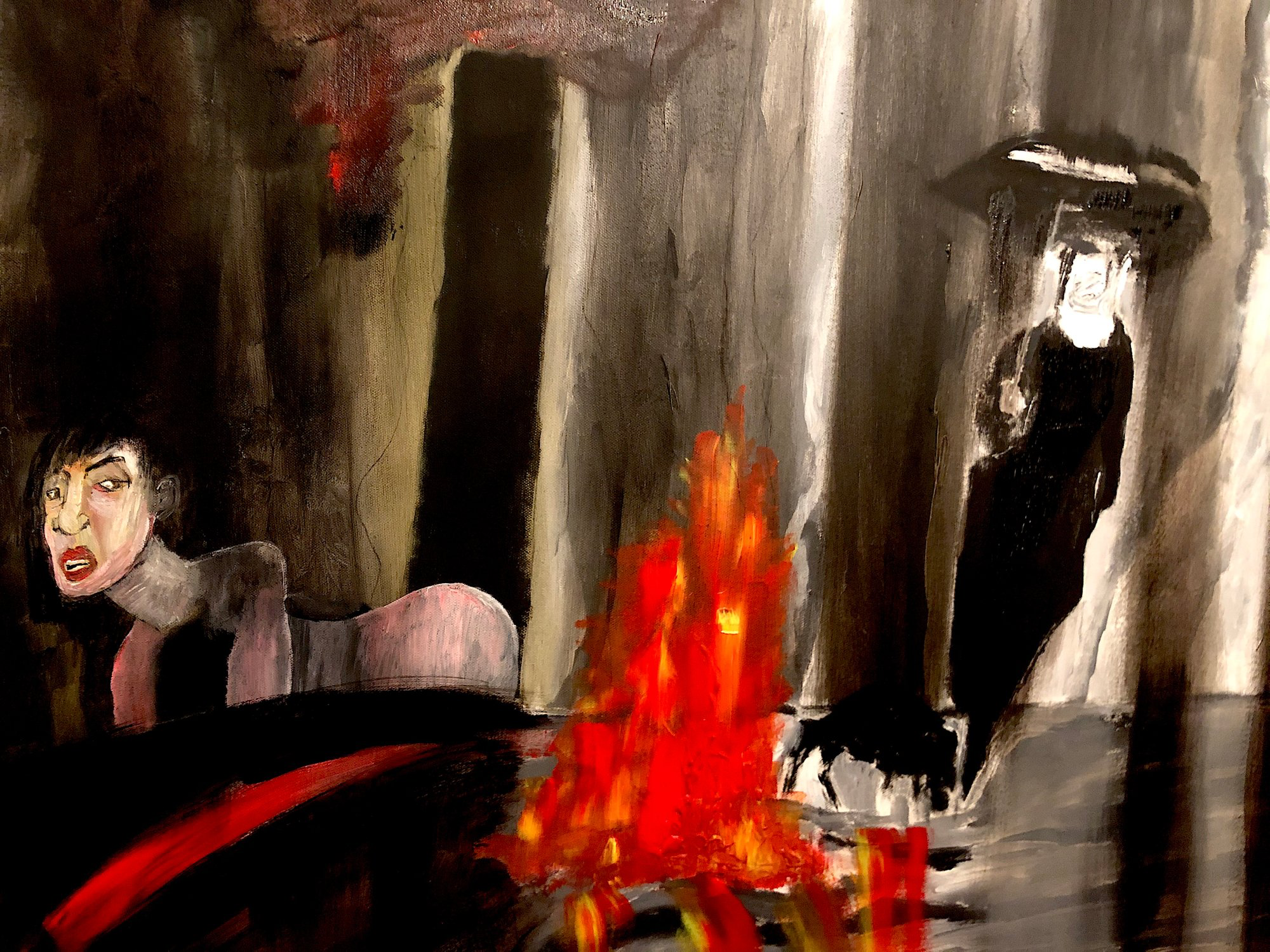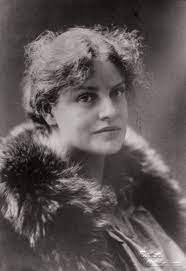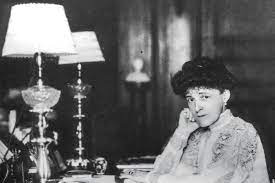Pandemic Conversations 3: Edith Wharton and Lou Andreas-Salomé

Two women stand by the side of a road. There are few cars. One looks like Edith Wharton, the other Lou Andreas-Salomé. They exchange a few brave words into fine shades of manner.

Edith Wharton: Half the trouble in life is caused by pretending there isn't any. It is easy enough to despise the world, but decidedly difficult to find any other habitable region.
Lou Andreas-Salomé: I do not doubt that mankind will survive even this, but I know for certain that for me and my contemporaries the world will never again be a happy place. It is too hideous. And the saddest thing about it is that it is exactly the way that we should have expected . Because of this I have never been able to agree with your blithe optimism.
EW: Why do you call all our generous ideas illusions, and the mean ones truths?
LA: My secret conclusion has always been: since we can only regard the highest present civilization as burdened with an enormous hypocrisy, it follows that we are organically unfitted for it. We have to abdicate, and the Great Unknown, He or It, lurking behind Fate will someday repeat this experiment with another race.
EW: The very good people did not convince me; I felt they'd never been tempted. But you know; you understand; you feel the world outside tugging at you with all its golden hands - and you hate the things it asks of you; you hate happiness bought by disloyalty and cruelty and indifference. That was what I'd never known before - and it's better than anything I've known.
LA: At one point it touches both your and my attitude to the distress of our time and what was my own optimism, which now seems so sadly shipwrecked.
EW: It's you who are telling me; opening my eyes to things I'd looked at so long that I'd ceased to see them.
LA: I believe that behind every individual human activities and the territory which can be reached through psycho-analysis there lies an abyss where the most valuable and nastiest impulses inextricably condition each other and render impossible any final judgment. This remarkable mixture remains a fact not only for the once surmounted stage of earliest development (of the race as well as of the individual), but ever anew and for everyone this remarkable unity is a fact — calculated to cast down the arrogant, but also to exalt the lowly of heart.
EW: In every heart there should be one grief that is like a well in the desert. It seems cruel that after a while nothing matters... any more than these little things that used to be necessary and important to forgotten people, and now have to be guessed at under a magnifying glass and labelled: 'Use unknown.’ We live in our own souls as in an unmapped region, a few acres of which we have cleared for our habitation; while of the nature of those nearest us we know but the boundaries that march with ours.
LA: Whoever reaches into a rosebush may seize a handful of flowers; but no matter how many one holds, it's only a small portion of the whole. Nevertheless, a handful is enough to experience the nature of the flowers. Only if we refuse to reach into the bush, because we can't possibly seize all the flowers at once, or if we spread out our handful of roses as if it were the whole of the bush itself -- only then does it bloom apart from us, unknown to us, and we are left alone.
EW: I have tried hard - but life is difficult, and I am a very useless person. I can hardly be said to have an independent existence. I was just a screw or a cog in the great machine called life, and when I dropped out of it I found I was no use anywhere else. What can one do when one finds out that one only fits into one hole? One must go back to it or be thrown out into the rubbish heap - and you don't know what it's like in the rubbish heap!
LA: The main thing is that life-faith is essentially and vitally present, by means of which we survive.
EW: The real loneliness is living among all these kind of people who only ask one to pretend!
LA: The optimistic nature finds joy in the very feeling for life; the pessimistic nature finds a feeling for life only in joy.
EW: The greatest mistake is to think that we ever know why we do things...I suppose the nearest we can ever come to it is by getting what old people call 'experience.' But by the time we've got that we're no longer the persons who did the things we no longer understand. The trouble is, I suppose, that we change every moment; and the things we did stay.
LA: Now I understand that my passion for pain, even in the torture of martyrdom, represents the haste and impatience to no longer be interrupted and disturbed by the evil that can come from this life. It’s poetry, something in-between the dream and its interpretation.
EW: One of the great things about travel is you find out how many good, kind people there are. But believe me, the best way to help the places we live in is to be glad we live there. Habit is necessary. It is the habit of having habits, of turning a trail into a rut, that must be incessantly fought against if one is to remain alive ... one can remain alive long past the usual date of disintegration if one is unafraid of change, insatiable in intellectual curiosity, interested in the big things, and happy in small ways.
LA: If you have no more happiness to give: Give me your pain, that sort of thing? - a pain which lends true greatness. Come and let us wrestle breast to breast; even if it means life or death. Come and leap into the heart's deepest interior and rummage through the depths of life. Take away dream's illusion and joy; take away things not worth one's unlimited strivings.
EW: Exactly. A frivolous society can acquire dramatic significance only through what its frivolity destroys. One of the surprises of this unoccupied state brought about by the pandemic is the discovery that time, when it is left to itself and no definite demands are made on it, cannot be trusted to move at any recognized pace. Usually it loiters; but just when one has come to count upon its slowness, it may suddenly break into a wild irrational gallop.
AL: It is true that all this makes no difference to our loathing for or our delight in a particular piece of human conduct, and a time like the present can consequently deal a death-blow to joy and confidence; but nevertheless one knows from oneself that one can only go on living in such an ultimate faith, and the same ought to apply to everyone else. Ought to: but of course it doesn’t, not in these days. However the fact that it ought to … that alone helps me a little.
EW: You are an artist and I happen to be the bit of colour you are using today. It's a part of your cleverness to be able to produce premeditated effects extemporaneously.
AL: Heaven belongs to the impetuous who won't wait.
EW: Yet an unsettling element in modern art is that common symptom of immaturity, the dread of doing what has been done before.
AL: Should we not be moved rather than chilled by the knowledge that we might have attained our greatness only through our frailties?
EW: These days I am moved with a growing sense of unreality and insufficiency, blundering against familiar prejudices and traditional points of view as an absent-minded person goes on bumping into the furniture of her own room. Absent- that is what I am: so absent from everything most densely real and near to those about me that it sometimes startles me to find some still imagine I am still here.
They scuttle away without another word to a silent room that was not solitude but compassion holding its breath. The visible world is a daily miracle for those who have eyes and ears. Overhead hung a summer sky furrowed with the rush of rockets; and from the east a late moon, pushing up beyond the lofty bend of the coast, sent across the bay a shaft of brightness which paled to ashes in the red glitter of the illuminated buses hurling along the roads.

